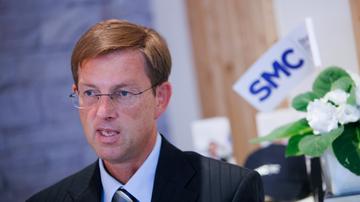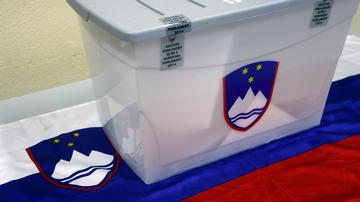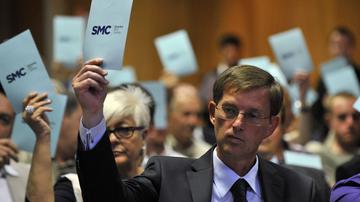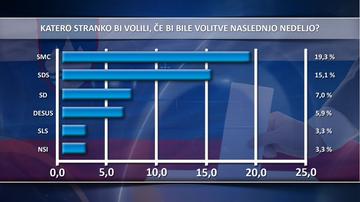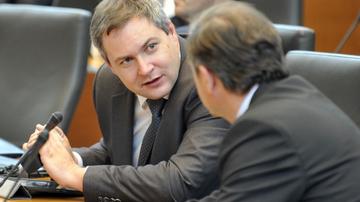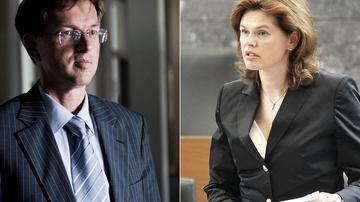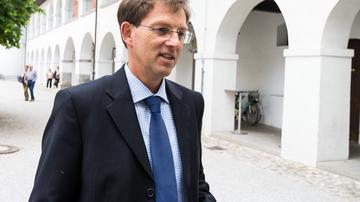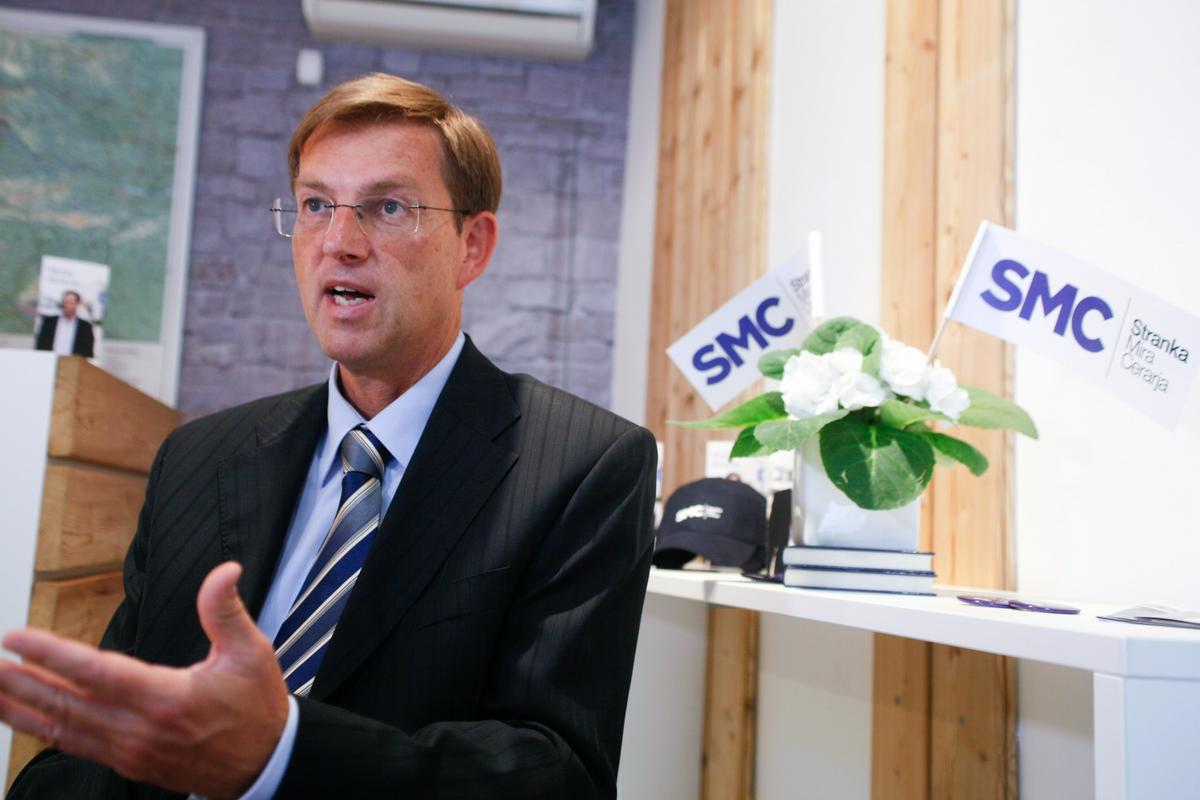
The son of one of his country's greatest sportsmen is front runner to become prime minister and take on the task of dragging Slovenia, once seen as a model for post-Communist prosperity, out of financial crisis and economic malaise.
Slovenia narrowly avoided having to seek an international bailout for its banks late last year.
Sunday's parliamentary election is rattling investors' nerves again, this time over the fate of measures the outgoing government agreed with its EU partners to steady Slovenia's finances and remake an economy roughly 50-percent controlled by the state.
A bespectacled law professor and adviser to parliament, Cerar, 50, takes his celebrity from his father Miroslav Cerar, a two-time Olympic pommel horse champion in the 1960s when Slovenia was part of socialist Yugoslavia.
His late mother was a politician, state prosecutor and justice minister.
Cerar formed his party - the Party of Miro Cerar - just five weeks ago. He has already shot to the top of opinion polls, testimony to the trust that traditional parties have squandered as Slovenia's crisis exposed an ingrained culture of politically-connected lending and mismanagement.
Cerar supports liberalising the economy and labour market rules, cutting red tape and selling off smaller state firms. But he has come out against the major slated sales of Slovenia's telecoms operator and international airport.
"I'm entering politics because I know that the situation in Slovenia is so bad that ... we need new people, new ideas, new practices," he told Reuters last week.
Cerar has offered few details, however. While his lukewarm embrace of privatisation might endear him to many traditionally leftist Slovenians, it will worry investors and Brussels.
Analysts see Cerar's centre-left SMC party entering coalition government with the Social Democrats (SD) and the Desus pensioners' party. Both were junior partners in the outgoing coalition, when the SD in particular barely disguised its distaste for privatisation and public sector spending cuts.
Twist of fate
"Cerar leads in opinion polls because he is not tainted with corruption and has credibility," said Borut Hocevar, an analyst at the Slovenian daily Finance. "However, privatisation will slow under his rule and will probably only happen because Brussels will insist on it."
When Slovenia joined the euro zone in 2007, it was the bloc's fastest growing economy. But the collapse of its export sector with the onset of the global crisis exposed the rot, and the outgoing government of Alenka Bratusek had to pour 3.3 billion euros (£2.63 billion) into local banks to keep them afloat.
Cerar's late mother, Zdenka, was once deputy leader of the Liberal Democrats, which ruled Slovenia for more than a decade until 2004, when Slovenia became the first ex-Yugoslav republic to join the European Union.
The Liberal Democrats, like other parties in power before and after, kept foreign investors at bay. Cerar, however, rejects any comparison with his own politics.
"I have the same basic values as my mother, that politicians must be honest, fight for their values and work for the benefit of Slovenia," he said. "But my professional and political career is entirely independent."
That he is challenging at all owes everything to a twist of fate in 1981, when Cerar's parents cancelled a family trip to Corsica because Miro's baby sister had fallen ill. The plane crashed into Corsica's San Pietro mountain, killing all 180 people on board.
"When we heard about the crash we had the feeling we had been reborn, that it was not yet time for us to go. Every day I'm grateful for that," Cerar said.
His party is scoring as much as 38 percent in some polls, but he will have to marshal disparate allies. Politicking toppled Bratusek's government and forced Sunday's early election.




















































